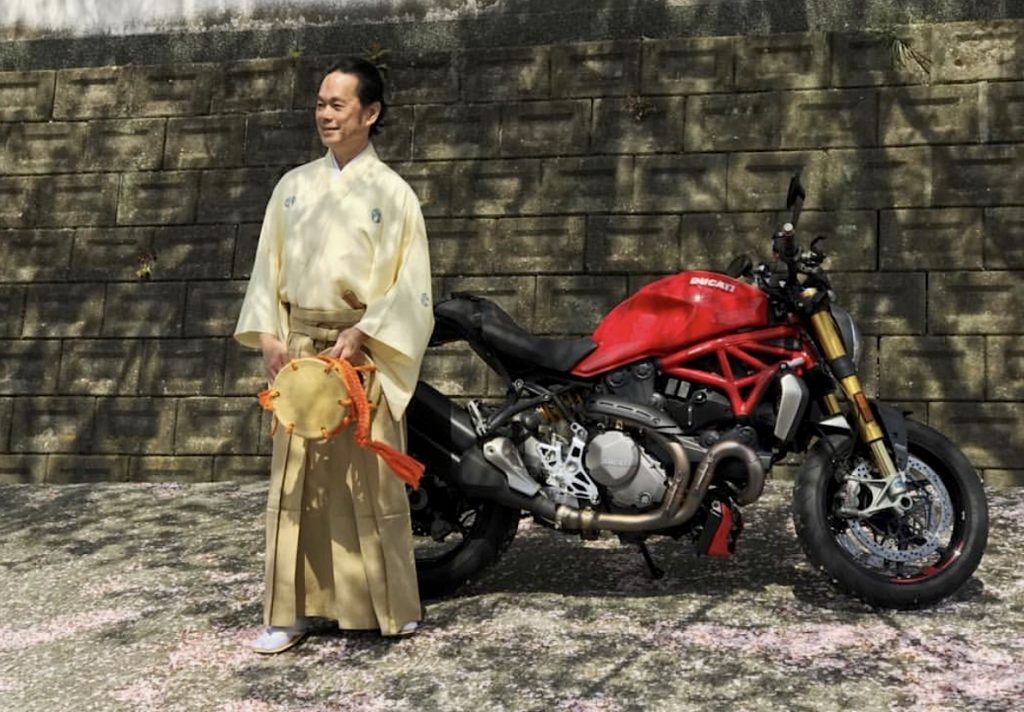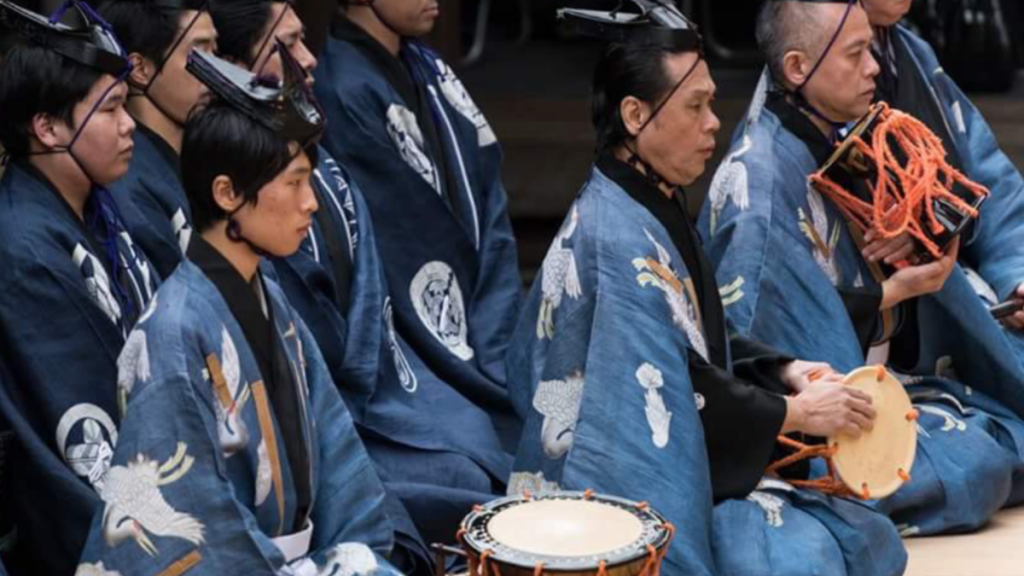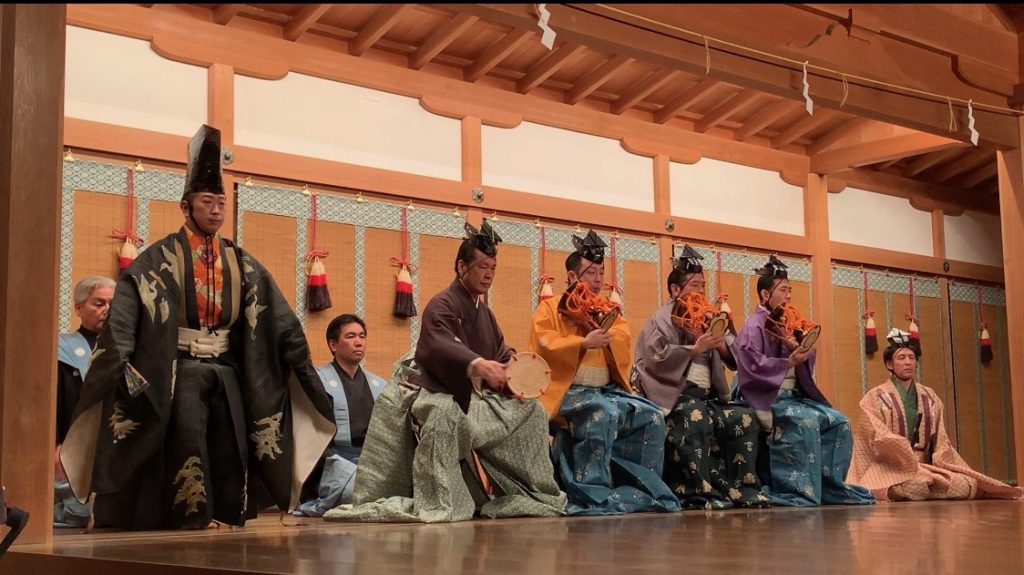







Hala Tashkandi
TOKYO: In a bright white traditional Japanese outfit, Shonosuke Okura sits patiently on a stool in front of a full set of authentic Samurai armor. On his lap is a small, handheld drum, made up of a wooden body, two discs of dried horse hide, and all tied together with bright orange cords. He sits, unstirring, staring straight ahead, his drum firmly placed on his thigh.
And then, he lifts his hand, strikes it dead-on with a thundering clack, and lets out an eerie, yet strangely invigorating cry. He does this again, and again, until the energy in the room changes, and a feeling of empowerment creeps over everyone in the room, and all of a sudden the attendees are transported back to a different time.
In his own words, Okura’s music can be a little “primitive”. It is essentially nothing more than the rhythmic beat of a drum, and the high, ululating war cries that used to pump up samurai warriors before battle in another era. And yet, as he himself points out, there is power in that kind of music.
Tsuzumi drums are used in traditional Japanese forms of theater (namely Noh and Kabuki) and some types of folk music, and many of them are old family heirlooms and therefore very precious. Okura’s drums are no exception: the wooden bodies of the drums, shaped like hourglasses and decorated with delicate gold imagery, are over 500 years old.
Okura belongs to the 16th generation of his family who has mastered the art of playing the tsuzumi. Handed down the precious drums by his father, it has been expected since he was born that he would continue the family tradition.
64 years old this year, Okura doesn’t even know exactly how long he has been playing the tsuzumi for, as he does not have a clear memory of holding it for the first time. “I don’t remember when I touched the drum for the first time because it was when I was very little. Everyone in my family, including my father and my grandfather, played the drum. I grew up watching them play. It is like I was already playing the drum before I realized it.”
Born in a very traditional family, Okura always felt like he was in a gap between traditional culture and modern society. “I have been thinking about bridging that gap, which serves as one of my foundations now. I would like to make good use of it in the modern age.”
It’s a responsibility he takes seriously. He visits schools and universities around the country on a regular basis, taking on students who will often join him for performances and events when needed. He feels a need to spread his love of the tsuzumi, and indeed, all forms of traditional Japanese art, in a time when many of Japan’s youths are at risk of losing touch with their traditions in favor of embracing Western culture.
“Nowadays, there are so many interesting things in this world, so doing things only in a traditional way does not work. We have so many nontraditional things these days, and we get distracted by them.” He said.
However, he believes that if the youth find some elements of traditional culture more appealing than modern, nontraditional culture, they will come back to the old ways. And Okura has been making significant efforts to make his craft appealing to the new generation.
A huge fan of motorcycles, Okura shows up to events that he performs at sometimes riding his bike, something which shocks people who assume he must be a pure traditionalist. “When I go outside of the traditional world, I get to know people whom I would not be able to meet otherwise.”
He has performed alongside modern DJs playing his 500 year old drum, and collaborated with a motorcycle manufacturer. “I collaborated with Yamaha, and they designed a motorcycle based on my drum play. What they did was, a designer listened to my drum play and came up with a concept and created a design, which was later commercialized.”
He does not, however, find the combination to be odd, or difficult to balance. “Neither my love of motorcycles nor my love of the drum is a hobby,” he says simply, “they are my way.”